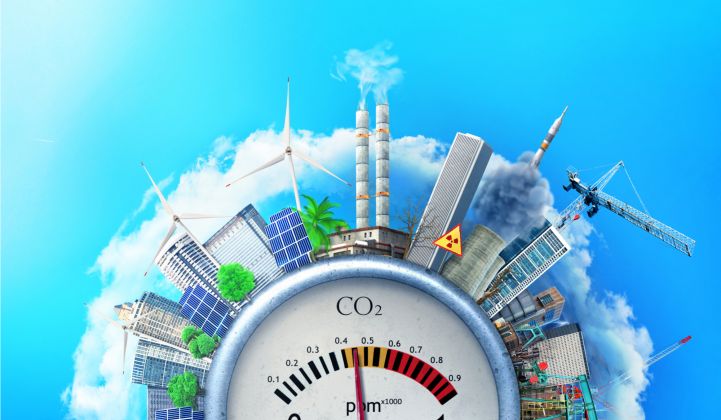The United Nations’ landmark climate report released last month laid out a grim prognosis for the planet — and added greater urgency to startup accelerator Y Combinator’s climate change investment strategy.
Climate change has evolved to a point where efforts to reduce emissions are no longer sufficient for effective mitigation, according to the U.N. report. The next step in preventing planetary catastrophe requires both emissions reductions and actually pulling carbon dioxide out of the air — before it's too late for either of these strategies to work.
That’s why the accelerator behind several of Silicon Valley’s hottest startups, including Airbnb and Dropbox, announced today that it’s seeking program applicants in four new “frontier technology” areas in its latest request for startups. These are meant to be bold, unproven and very possibly unachievable ideas for removing carbon dioxide from the atmosphere.
“These are all unlikely to work,” Sam Altman, president of Y Combinator, told GTM.
These aren’t the accelerator’s “Plan A” solutions, he said. “But I think we’re at the point where we need to be willing to look at Plan B.”
Y Combinator first announced in March that it is looking to invest in carbon removal technologies, but hasn’t funded any startups in this space to date. Today’s announcement adds new momentum to this effort by fleshing out four specific "moonshot" solutions that YC leadership believes could one day work at scale:
- Genetically engineered phytoplankton that could be used to photosynthetically convert carbon dioxide into an ultra-stable carbon sequestration medium.
- Electro-geochemistry, which uses an electrochemical process to increase the rate of geochemical carbon dioxide removal, where common rocks react with CO2 to form dissolved mineral bicarbonates.
- Purify enzymes to make cell-free enzyme systems that would allow for carbon fixation. In a perfectly designed system, a mix of purified enzymes could fix carbon in perpetuity, with no compounding cellular material or extraneous resource sinks.
- Flood the desert with water to create millions of 1-square-kilometer reservoirs that can absorb and retain carbon with the potential benefit of creating newly habitable areas.
The prestigious accelerator program has invested in more familiar climate solutions in the past. Y Combinator has backed solar startup Bright, for instance, which is bringing solar power to Mexico. The program has also funded Oklo, which is working on a small, portable nuclear reactor, and Airthium, which is using thermodynamic energy storage modules to store excess renewable energy on-site and aboveground.
So why not continue to focus on solutions with a better chance of success, like solar and energy storage?
“Adopting renewable energy and reducing future emissions are both important strategies, but we need to do more to reverse the harm we've already done,” according to the YC carbon removal website.
Hundreds of millions of dollars are spent each year on reducing carbon emissions, and yet it’s a problem the world has been unable to solve. “We can't seem to get around the idea that emitting carbon provides great individual benefit today even though it comes at a great cost to us in the future,” the website states.
“To be clear, I would much rather us figure out how to stop emitting carbon dioxide,” Altman said. “But we seem to be failing to do that.”
The latest request for startups is largely meant to start a discussion, he added. The March announcement signaled YC’s interest in carbon removal. Today’s update shows that the accelerator is serious about it.
Altman said he hopes to fund five startups within the next year that are working on carbon removal. Each recipient would receive Y Combinator’s standard $150,000 investment in exchange for ownership.
When asked why he was bothering with moonshot ideas when it's almost assured they won’t succeed, Altman noted that that’s just the way Y Combinator operates.
“We throw so much money away at so many things that don’t work out,” said Altman. “We’re used to that.”
“Our whole model is that we make high-risk, high-reward investments,” he continued. “Most of them fail, but the ones that work, work so well that they pay for all of the failures.”
YC is prepared to fund startups that fail a whole lot in the near term, with the hope of getting the biggest payout yet: saving the planet.




